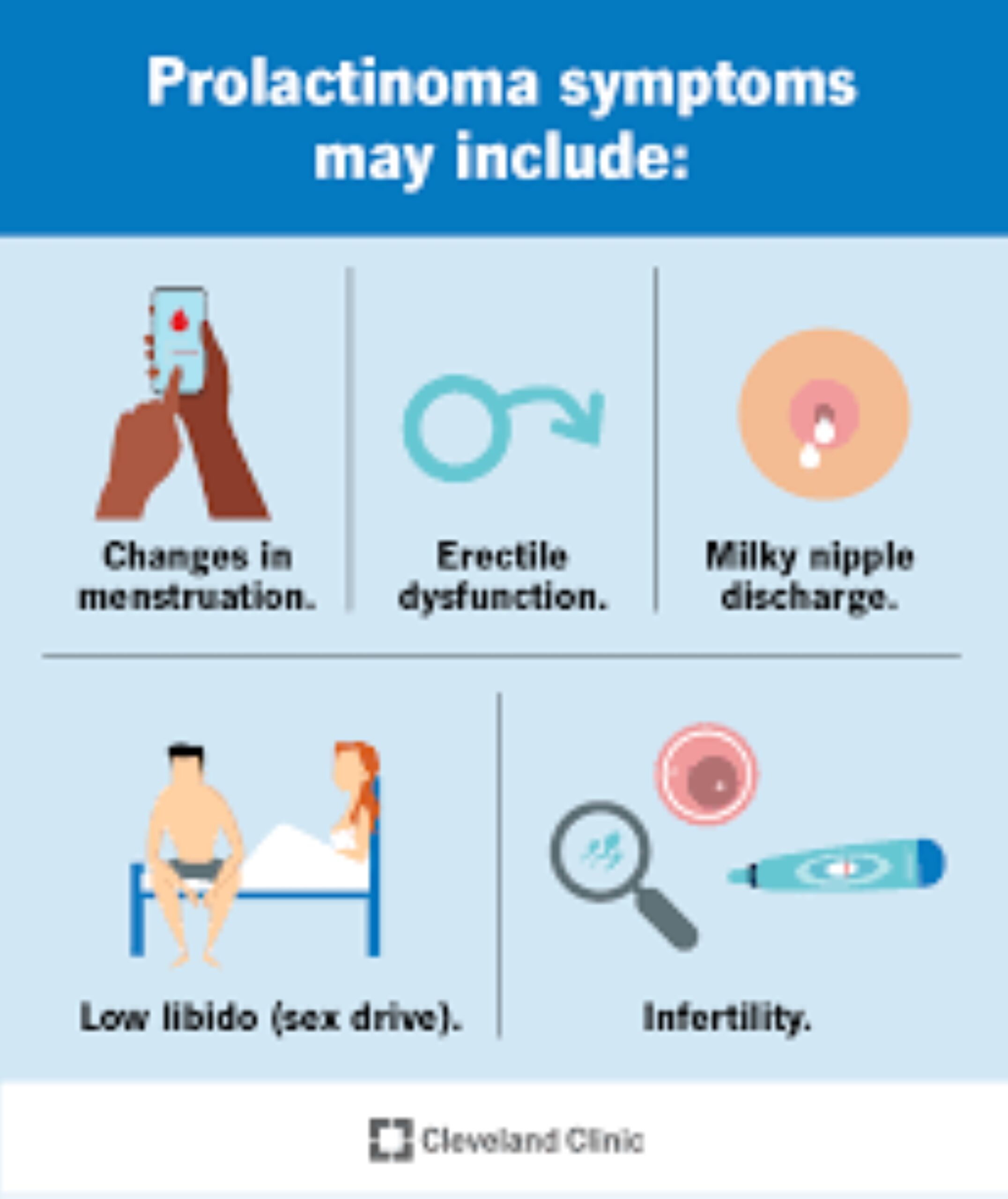Effective Treatments for Hormonal and Pituitary Disorders
Hormonal imbalances, menstrual irregularities, fertility challenges, and pituitary gland disorders are complex medical conditions that can significantly impact a person’s...

Hormonal imbalances, menstrual irregularities, fertility challenges, and pituitary gland disorders are complex medical conditions that can significantly impact a person’s quality of life. These conditions often require targeted treatment to restore balance and improve health outcomes. One such treatment is Cabergoline, a potent dopamine agonist available under the brand name Dostinex. This medication is widely used to address a range of conditions, including hyperprolactinemia, pituitary tumors, and associated menstrual and fertility issues. In this comprehensive guide, we will explore how Dostinex (Cabergoline 0.25mg and Cabergoline 0.5mg) works, its applications, benefits, and considerations for use.
Understanding Hormonal Imbalances and Pituitary Disorders
The pituitary gland, often referred to as the “master gland,” plays a critical role in regulating hormones that control various bodily functions, including growth, metabolism, and reproduction. When the pituitary gland malfunctions, it can lead to hormonal imbalances that disrupt menstrual cycles, fertility, and overall health.
One common pituitary-related condition is hyperprolactinemia, a disorder characterized by abnormally high levels of prolactin, a hormone responsible for milk production. Elevated prolactin levels can interfere with the production of other hormones, such as estrogen and testosterone, leading to:
- Irregular or absent menstrual periods (amenorrhea)
- Infertility or difficulty conceiving
- Galactorrhea (unexpected milk production)
- Decreased libido
- Erectile dysfunction in men
In some cases, hyperprolactinemia is caused by pituitary tumors, particularly prolactinomas. These benign tumors can compress surrounding tissues, causing additional symptoms like headaches and vision problems.
What is Dostinex (Cabergoline)?
Dostinex is the brand name for Cabergoline, a synthetic dopamine agonist that works by stimulating dopamine receptors in the brain. Dopamine is a neurotransmitter that inhibits the secretion of prolactin from the pituitary gland. By mimicking dopamine, Cabergoline effectively lowers prolactin levels, addressing the root cause of many hormonal and reproductive issues.
Cabergoline is available in two common dosages: 0.25mg and 0.5mg. The dosage prescribed depends on the severity of the condition, the patient’s response to treatment, and other individual factors.
How Dostinex (Cabergoline) Works
Cabergoline’s mechanism of action is both targeted and effective. Here’s how it works:
- Dopamine Receptor Stimulation: Cabergoline binds to dopamine D2 receptors in the pituitary gland, mimicking the effects of dopamine.
- Prolactin Suppression: By activating these receptors, Cabergoline inhibits the production and release of prolactin, restoring normal hormone levels.
- Tumor Shrinkage: In cases of prolactinomas, Cabergoline not only reduces prolactin levels but also shrinks the tumor, alleviating symptoms like headaches and vision disturbances.
This dual action makes Cabergoline a powerful tool for managing hyperprolactinemia and pituitary tumors.
Conditions Treated by Dostinex (Cabergoline)
Dostinex (Cabergoline) is primarily prescribed for the following conditions:
1. Hyperprolactinemia
Cabergoline is the first-line treatment for hyperprolactinemia. By normalizing prolactin levels, it helps restore regular menstrual cycles, improves fertility, and alleviates symptoms like galactorrhea.
2. Pituitary Tumors (Prolactinomas)
For patients with prolactin-secreting pituitary tumors, Cabergoline effectively shrinks the tumor and reduces prolactin levels. This not only addresses hormonal imbalances but also relieves pressure on surrounding structures, reducing symptoms like headaches and vision problems.
3. Menstrual Disorders
Women with irregular or absent menstrual periods due to high prolactin levels often find relief with Cabergoline. The medication helps regulate menstrual cycles, improving reproductive health.
4. Fertility Issues
High prolactin levels can interfere with ovulation, making it difficult for women to conceive. By lowering prolactin, Cabergoline restores ovulation and improves fertility.
5. Parkinson’s Disease (Off-Label Use)
While not its primary indication, Cabergoline is sometimes used off-label to manage symptoms of Parkinson’s disease due to its dopamine agonist properties.
Benefits of Dostinex (Cabergoline)
Dostinex (Cabergoline) offers several advantages for patients with hormonal and pituitary conditions:
- High Efficacy: Cabergoline is highly effective in reducing prolactin levels and shrinking pituitary tumors.
- Long-Lasting Action: Unlike some other medications, Cabergoline has a long half-life, allowing for less frequent dosing (typically twice a week).
- Improved Fertility: Many patients experience restored fertility and successful pregnancies after starting Cabergoline.
- Symptom Relief: The medication alleviates symptoms like irregular periods, galactorrhea, and headaches.
- Non-Invasive Treatment: Cabergoline provides an effective alternative to surgery for pituitary tumors.
Dosage and Administration
Cabergoline is available in two strengths: 0.25mg and 0.5mg. The dosage is tailored to each patient’s needs, and treatment typically follows these guidelines:
- Initial Dose: Most patients start with a low dose of 0.25mg twice a week. This minimizes the risk of side effects while allowing the body to adjust to the medication.
- Dose Adjustment: Based on the patient’s response and prolactin levels, the dose may be gradually increased to Dostinex 0.5mg twice a week or higher.
- Monitoring: Regular blood tests are conducted to monitor prolactin levels and ensure the dosage is effective.
It’s important to follow the prescribed dosage and schedule to achieve optimal results.
Potential Side Effects
Like all medications, Dostinex (Cabergoline) can cause side effects, although not everyone experiences them. Common side effects include:
- Nausea
- Dizziness
- Headache
- Fatigue
- Constipation
- Abdominal pain
Most side effects are mild and temporary, often resolving as the body adjusts to the medication. However, if side effects persist or worsen, patients should consult their healthcare provider.
In rare cases, Cabergoline may cause more serious side effects, such as:
- Heart valve abnormalities (with long-term, high-dose use)
- Psychiatric symptoms (e.g., hallucinations, confusion)
- Low blood pressure
Patients with a history of heart or psychiatric conditions should discuss these risks with their doctor before starting treatment.
Precautions and Considerations
Before starting Dostinex (Cabergoline), patients should consider the following:
- Medical History: Inform your doctor if you have a history of heart, liver, or kidney disease, or psychiatric disorders.
- Pregnancy and Breastfeeding: Cabergoline is generally not recommended during pregnancy unless absolutely necessary. It is also not advised for breastfeeding mothers due to its effects on prolactin.
- Drug Interactions: Cabergoline may interact with other medications, such as antipsychotics and blood pressure drugs. Always inform your doctor of all medications you are taking.
- Alcohol: Alcohol can increase the risk of side effects like dizziness and should be avoided while taking Cabergoline.
Success Stories and Patient Experiences
Many patients have reported significant improvements in their symptoms and quality of life after starting Dostinex (Cabergoline). For example:
- Case 1: A 32-year-old woman with irregular periods and infertility due to hyperprolactinemia started taking Cabergoline 0.25mg twice a week. Within three months, her prolactin levels normalized, and she successfully conceived.
- Case 2: A 45-year-old man with a prolactinoma experienced severe headaches and vision problems. After starting Cabergoline 0.5mg twice a week, his tumor shrank, and his symptoms resolved.
These success stories highlight the transformative potential of Cabergoline for patients with hormonal and pituitary conditions.
Conclusion
Dostinex (Cabergoline) is a powerful and effective treatment for hormonal imbalances, menstrual disorders, fertility issues, and pituitary tumors. By targeting the root cause of these conditions—elevated prolactin levels—Cabergoline helps restore hormonal balance, improve reproductive health, and alleviate symptoms. With proper dosage, monitoring, and adherence to medical advice, patients can achieve significant improvements in their health and well-being.
If you suspect you have a hormonal imbalance or pituitary condition, consult your healthcare provider to determine if Dostinex (Cabergoline) is the right treatment for you. With the right approach, you can take control of your health and move toward a brighter, healthier future.







